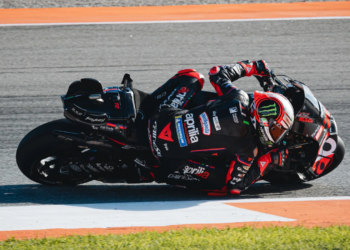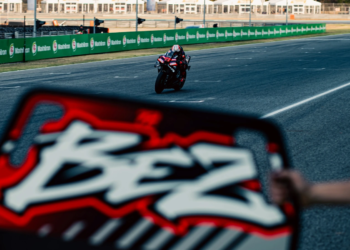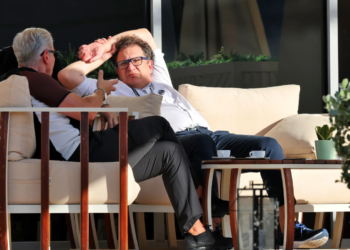Liberty Media completed its acquisition of Formula 1 on Monday, ousting Bernie Ecclestone, though giving him an honorary presidency role, and appointing Chase Carey (as CEO), Ross Brawn (to focus on the sporting side) and Sean Bratches (to concentrate on the commercial arm).
Ecclestone has dragged the sport from a disorganised rabble into a slickly-run multi-billion pound empire, but Liberty, having spent the last few months conducting research, will undoubtedly enact changes. But what would the Motorsport Week team do if put in charge of the sport? While we’re sure Chase, Ross and Sean have far more important things to do than read the thoughts of a niche website, here’s what we’d concentrate on if given the keys to the castle.
Better promotion of Grands Prix: There are only 20 Formula 1 events a year but often their promotion is woeful, fuelled by a lack of finance, with the sport having previously left the circuit to fend for itself. Visit the small town of Hockenheim last year and you’d have no idea the German Grand Prix was taking place, aside from a couple of signs and drawings by local schoolchildren in a shop window. Improving this can, for a start, be achieved through greater TV and Internet advertising (rather than leave it to broadcasters), as well as promotion in nearby towns and cities (rather than relying on cash-strapped circuits).

Social media: Ecclestone had previously doubted the merit of social media platforms and only reluctantly gave the green-light to its usage at the start of 2015. Formula 1’s presence has therefore increased in recent years, but there is still an untapped market out there, where a whole generation of potential fans can be reached. Using platforms such as Snapchat and Periscope will assist the cause, while the ability to live stream sessions and incidents would be beneficial, albeit with the caveat that there are stringent contracts with broadcasters, who will understandably not want to lose out. Better exploitation of the video games market (think of the popularity of the FIFA franchise), and leading the way on new technology (such as Virtual Reality) would mirror the core foundations and ethics of Formula 1, while also profiting from a huge market.
Shake up the political tree: The Strategy Group has only ever been a reactionary body led by the best teams, and should be shaken up, regulations should remain static for several years to aid with costs and performance convergence, while the financial payments should change. This will be met with resistance from some corners (Ferrari), while there is also the caveat that the midfield/backmarker teams will then simply spend what they have available (ie, more). Consequently, this cannot be an overnight change and must be thought with a long-term view in mind.
Support, rather than exploit, new markets: The short-termism previously adopted regarding new markets should be abandoned in favour of establishing a platform in those countries (India and Korea the most two obvious examples). With the assistance of the FIA, which has already launched regional F4 championships, Liberty should nurture rising talents – whether in driving or engineering – in new markets, creating a sustainable system. However, while exploring potential new locations, Liberty should also preserve the existing classic events (Silverstone, Spa, Monaco, Monza), and ensure the calendar remains a mix of urban and rural, with a variety of cultural locations and circuit types.

Racing: Simplify the racing in order to attract the casual viewer, while retaining the strategic and technological elements savoured by the hardcore fan. Tweaking the Drag Reduction System, so it becomes a tactic rather than arbitrary device, would be a start. Circuits need to be seen as challenging while retaining modern safety standards, with mistakes punished, and the television angles need to capture the brutality and speed of Formula 1, rather than merely pandering to the requirement of sponsors. Formula 1 is staggeringly impressive when viewed trackside, but this only infrequently reflected in the world feed – where 400 million people are watching.
Turn Grands Prix into festivals: Silverstone began this trend, while other circuits have followed suit, with concerts and activities, turning a Grand Prix into more than just a motor race. Ticket prices need to be lowered where possible, with other F1-related experiences elsewhere in the country/near to the circuit during the build-up to the event. Taster activities for children would also be welcome, such as karting experiences, ensuring the next generation are attracted to the sport.
Expansion of junior feeder series: GP2 and GP3 have a presence on the Formula 1 roster but it is given minimal coverage, minimal promotion, with separate paddocks, sometimes miles apart, giving young drivers little exposure to Formula 1, and Formula 1 little exposure to the young drivers. Supporting the junior categories, and improving its association with Formula 1, akin to the MotoGP/2/3 model, would be a positive step.
This is just the tip of the iceberg, while it’s important to note that the FIA plays a fundamental role in the running of the sport, but in the concept of 'marginal gains', small tweaks can add up. After all, it's only a start…






Discussion about this post